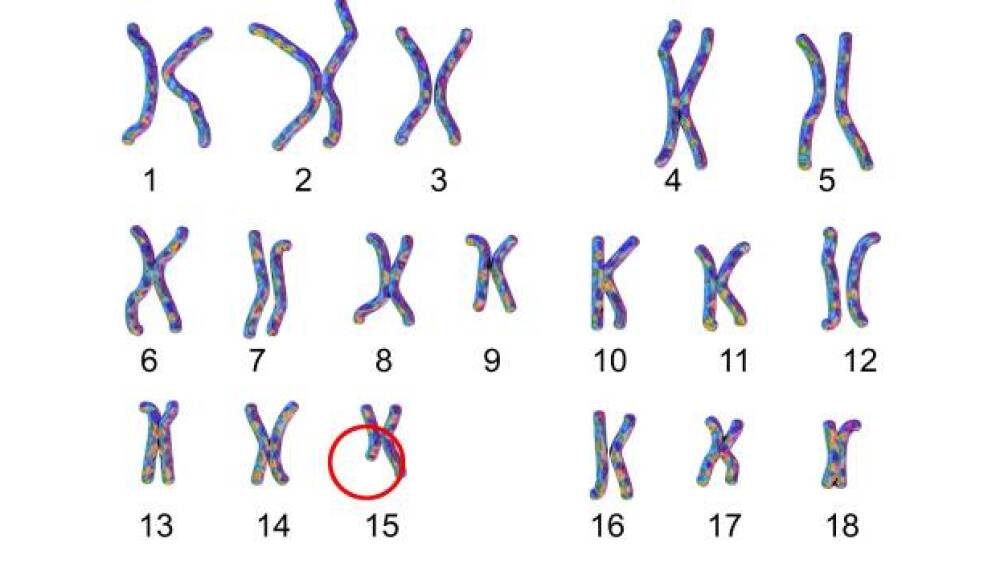The buyout comes on the heels of promising Phase I/II results from GTX-102, an antisense oligonucleotide candidate being developed to treat Angelman syndrome.
Ultragenyx is exercising its exclusive option to acquire partner GeneTx Biotherapeutics. The deal will see the Novato, California-based company make $75 million in upfront payments to GeneTx, along with future milestones and royalties. At the heart of the deal is GTX-102, the first potentially disease-modifying therapy for Angelman syndrome (AS), a rare neurogenetic disease, to enter human clinical trials.
The buyout comes on the heels of promising interim data from the Phase I/II of GTX-102. Results based on a total of 11 children with a genetically confirmed diagnosis showed that the therapy induced meaningful clinical improvements in Angelman symptoms without causing side effects that were too severe.
Treatment efficacy was measured using the AS change and severity scales, both of which require clinicians to conduct assessments across five domains: sleep, behavior, communication and fine and gross motor skills. At 128 days after GTX-102 dosing, nine of the 11 evaluable children demonstrated marked improvements in at least three of five of these domains, and in their overall scores. At the time of the interim findings, none of the treated patients had developed serious adverse events.
“We are seeing encouraging early clinical activity across multiple domains and multiple measurements without any evidence of drug-related safety issues. The therapeutic effect should be further enhanced by starting at higher monthly loading doses that have already been shown to be tolerated,” Emil D. Kakkis, M.D., Ph.D., chief executive officer and president of Ultragenyx, said in a statement.
“These data combined with the excellent science of Dr. Scott Dindot, the inventor of GTX-102, have given us the confidence to exercise our option to acquire GeneTx at an earlier timepoint so that we can take the lead on advancing GTX-102 into late-stage development for Angelman syndrome,” he added.
Affecting up to 1 in 12,000 people worldwide, Angelman syndrome is caused by a loss-of-function mutation on the allele of the UBE3A gene passed down from the mother. This peculiar maternal mode of disease inheritance is due to the natural silencing of the father’s UBE3A allele through an antisense transcript. Patients with AS develop more slowly, have communication, balance and motor issues and suffer from debilitating seizures. Often, patients will need continuous care for their entire lives and are unable to live independently. There are currently no approved treatments for the disease.
Angelman Syndrome is Personal for FAST
After funding Dindot’s laboratory at the Texas A&M University for over five years, the Foundation for Angelman Syndrome Therapeutics (FAST) founded GeneTx in 2017 to focus solely on developing a treatment for Angelman. At the core of this spinoff firm was GTX-102, an ASO designed to target and bind the antisense transcript that deactivates the paternal UBE3A allele. This, in theory, would leave one functional copy of the UBE3A gene to ease AS disease activity.
Ultragenyx entered the picture in 2019 when it partnered with GeneTx to nurture GTX-102 and see it through to approval. Yesterday’s acquisition is the culmination not only of this partnership but also of FAST’s years-long quest to fulfill a huge unmet need for AS patients.
“We selected Ultragenyx as a partner several years ago, and we really value that relationship for a number of reasons,” John Schlueter, chairperson of the board of FAST told BioSpace in an interview. “We love their patient-centered focus and we really appreciated that $25 million investment early on when they purchased the exclusive option for GeneTx. It enabled us to move GTX-102 into clinical trials.”
FAST was founded to develop promising therapies for Angelman syndrome. For the foundation’s 12 directors, the mission is personal, as each has a child living with the disease. Schlueter’s daughter, Grace, just turned nine.
“I think the most profound challenge is the complete lack of speech in my daughter, and in many of the children living with Angelman syndrome…Her inability to express a challenge if her back hurts or she has a headache. She has a little choice but to scream...that’s difficult for Grace and it certainly saddens our family,” he shared, adding that Grace also is also unable to walk without assistance. “This program and others bring me so much hope for her future to live an independent life.”
Besides the Ultragenyx therapy, Schlueter shared that FAST is investing in several other modalities with potential to treat AS, including miRNA, adeno-associated viruses, CRISPR and hematopoietic stem cell treatment. While each is currently in early-stage development, “FAST feels that a number of these options are ready for translation to human clinical trials,” he said.
There are currently 500,000 people living with Angelman syndrome worldwide.







